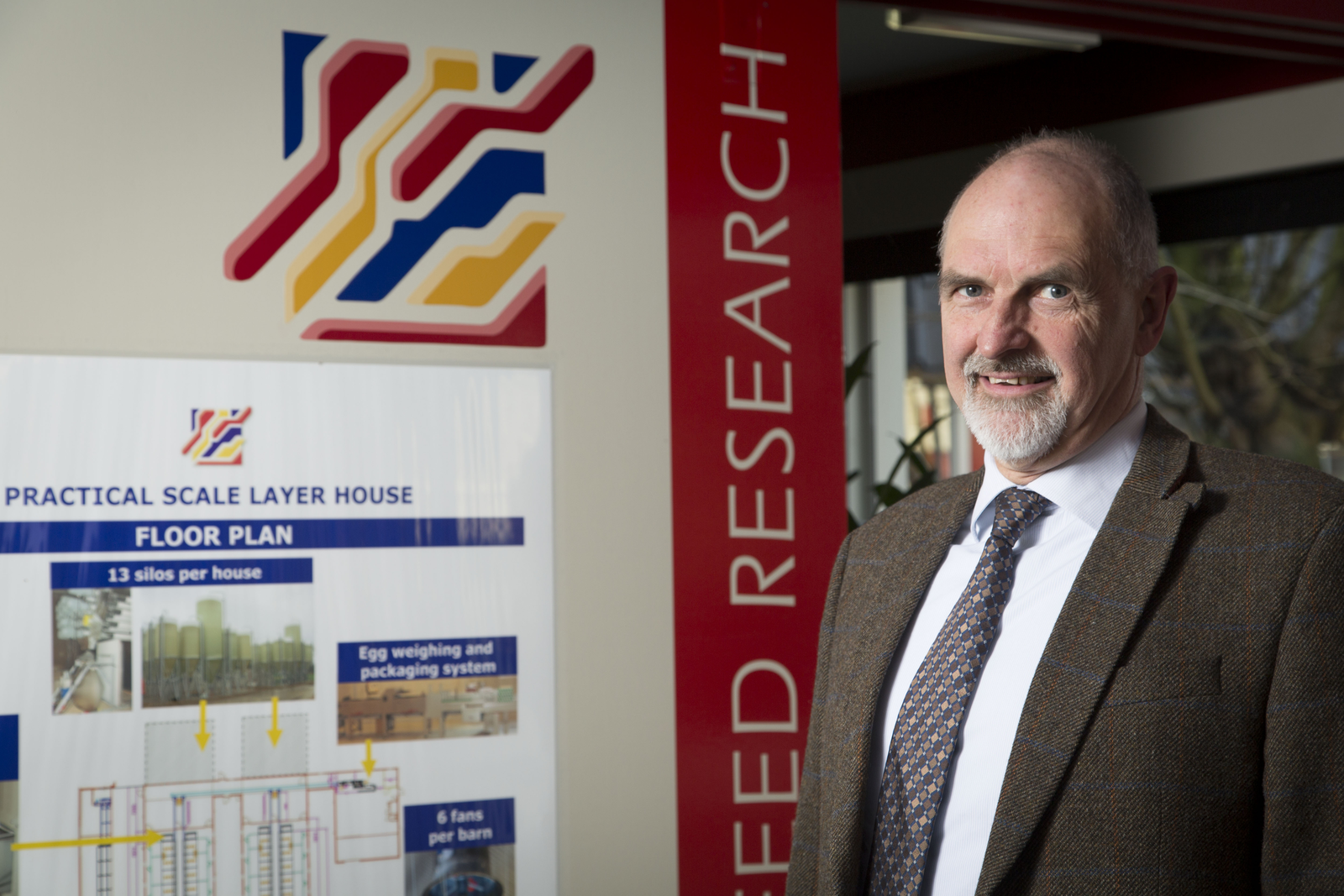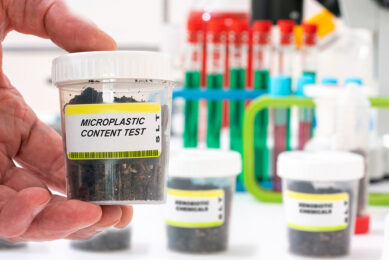Schothorst Feed Research: Making feed better

AllAboutFeed recently talked to Dutch poultry nutrition researcher Loek de Lange from Schothorst Feed Research in the Netherlands. He names efficiency and health as the main topics of interest in current animal feed research and also addresses the need for young people in the feed business.
By Emmy Koeleman
Since January 2014, Loek de Lange is the new head of the poultry nutrition research group at Schothorst Feed Research (SFR), based in Lelystad, the Netherlands. What is done at this research institute and what will future research be focused on? We catched up with Loek de Lange to find out.
What is the expertise of SFR?
“SFR is a Dutch independent private research and consultancy institute for animal nutrition, with a strong international focus. Our main area of expertise is to assist clients worldwide in implementing nutritional science into practical and economical feed formulations, nutritional products, and feeding programmes adapted to local markets and circumstances. We have done this for many years and we have even recently been recognised as the most innovative company in our province. We are very pleased with this. The jury behind this innovation award acknowledged that research on social and agricultural topics such as improving animal health, fertility, reduction of emission to the environment, animal welfare and the quality of animal product contributes
to the positive international image of the province Flevoland – where our offices are based – and the Netherlands on a whole.”
What is important in today’s animal diets?
“Two key words come up: efficiency and health. Efficiency is about producing animal products at a low input of energy, protein and minerals, and so reducing feed costs and emission to the environment. Antibiotic growth promoters have been used for many years to improve feed utilisation and intestinal health, but have been banned in the EU since 2006 because microbes become resistant to antibiotics. One of the greatest threats for human health is the increasing resistance of bacteria to antibiotics, leading to the current emphasis on also reducing the curative use of antibiotics in livestock production. The transfer of resistant bacteria from farm animals to human food and transfer of genes involved in this resistance between bacteria are well known trends. So, we have to reduce the use of antibiotics in farm animals and look for alternatives.
Not all nutritionists realise that intestinal microbes are dining at the same table as their host, and so consume valuable nutrients. We should not try to eradicate microbes from the intestine, because they are very useful to develop the immune system and keep pathogens out, but if we can reduce their numbers by nutritional means (via feedstuff and additives) then, I am sure, we will do a good job.”
How does SFR contribute to the demands of feed professionals?
“The feed business is a very competitive industry, and the difference between profit and loss is often marginal. Manufacturing feed is not only about aiming for the highest animal performance, but about how to reduce feed costs (feed price times feed conversion) and how to make profit. Knowing the feeding value of feedstuffs and using adequate nutritional requirements really can make that difference. Requirements should not only be formulated per kilogram of feed, but should also be based on local animal performance and a factorial approach taking age, maintenance, production and other factors into consideration.
New research tools as DNA-techniques to study microbes and gene regulation has and will expand our knowledge. I am very excited about the new developments in this field. SFR has well-equipped research facilities to do performance and challenge experiments. Together with feed additive producers, the knowhow about animal nutrition at SFR and other leading institutes and laboratories that have these new techniques in house, SFR can make a difference in the near future. Globally the animal compounding feed production shows a clear growth in volume and adds up to about 950 million tonnes of which currently about 7% is using the Advanced Feed Package and recommendations of SFR. Improvement of the quality of animal nutrition and the use of alternative raw material sources and side streams will be across the globe, and major volume increase is currently foreseen in Asia.”
How has the feed industry changed over the years?
“In the 1980s environmental issues became important within the feed business in the Netherlands, a small and densely populated country with people and livestock. At that time phytase was developed and I am proud to say that phytase was a Dutch invention.
Also many other enzymes to improve feed efficiency have been developed since then and this process will be a continuing story in years to come.
It is amazing that anti-microbial growth promoters (AGPs) have been used for many years in feed without really knowing what the mode of action of these antibiotics was. Scientists still discuss this. Since the announcement of the ban of AGPs at the start of this millennium and the effective ban in 2006 in the EU, numerous experiments have been performed to look for alternatives.
Replacing antibiotics by pro- or prebiotics has not been very successful and not many economic alternatives for AGPs have been developed, but also in this field interesting developments are going on. In addition, the size of the feed companies has increased tremendously during the last decades. Not only in the Netherlands but also abroad. I just came back from China, where I experienced that a single feed company as New Hope in China produces the same volume of feed the whole of the Netherlands. I would also like to mention that De Heus has become ten times as big as it was 15 years ago. Also another Dutch company, ForFarmers, is very ambitious and growing at a fast pace. And these developments will go on. Small may be beautiful, but big is powerful.”
What is your role in motivating young people to enter the feed industry?
“There is certainly a role for feed companies and research institutes in promoting animal nutrition and more specifically to promoting the study of animal nutrition to young people, and we do so. We have a foundation called ‘Bevordering Studie Diervoeding’ (Promotion Study Animal Nutrition), financed by the Dutch Association of feed companies (NEVEDI), VICTAM and SFR.
This foundation provides annual scholarships to students who study animal nutrition and informs students about jobs and career possibilities withinin animal nutrition. This way, we can continue to apply new nutritional knowledge and insights by developing and performing innovative research projects with interested parties. More importantly: how can we apply these new insights in practise and what is the added value for our clients? This is where we can make all the difference. Knowing is not enough, we have to apply, as Goethe said many years ago.”
[Source: AllAboutFeed magazine Vol 22 nr 3, 2014]











